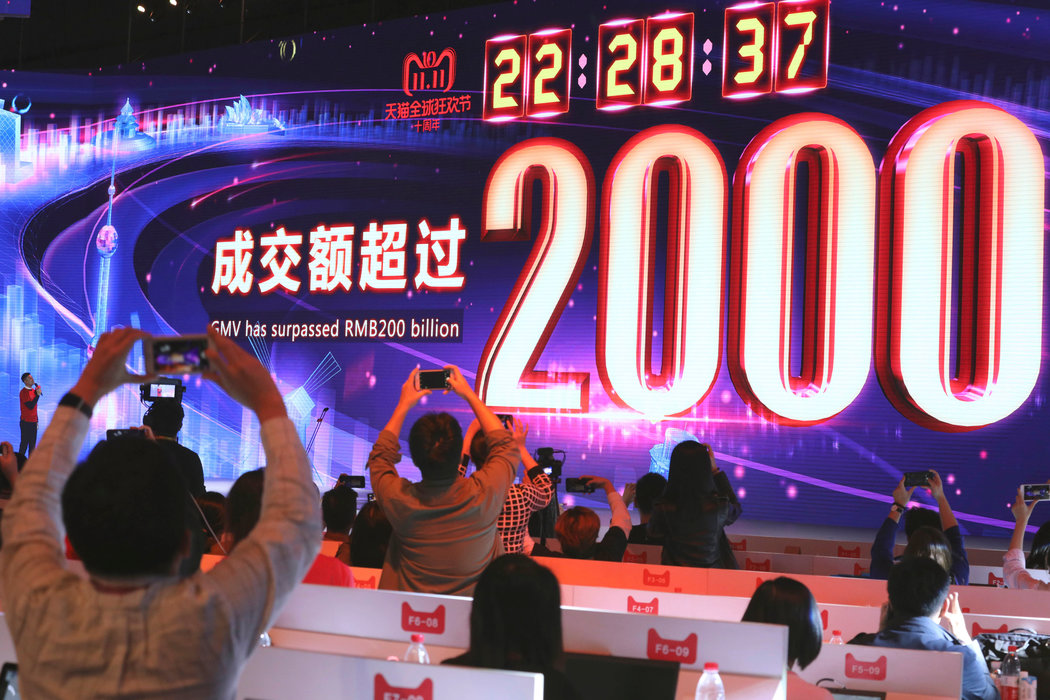|
关键词:hype 炒作
刚刚过去的这个周末,你买到想“剁手”了吗?阿里巴巴欢天喜地宣布,今年双11购物节超过2000亿元的销售额再创历史新高。尽管这艘象征着中国购买力的狂欢巨轮的或将撞上经济放缓的冰山,但它仍创造出了一波消费狂潮。时报记者在报道中写道:“2018年双11表明,在中国,阿里巴巴就算不是别的,也仍然是炒作之王。”(Singles Day 2018 showed that Alibaba remains, if nothing else, China's king of hype.)
Hype一词可指对某事物的兴奋或期待,也可以是奢侈或密集的宣传和炒作,这个词或多或多少带点华而不实的意味。在时报2016年关于双11的报道《阿里巴巴“双11”神话能否延续?》(Alibaba, Amid Intense Hype, Confronts a Slowdown on Singles Day)中,记者写道,阿里凭借巧妙的营销手段,在网上消费的一波繁荣的推动下,在不到10年的时间里将11月11日变成了中国消费者力量的象征。然而,帮助阿里巴巴创立这个购物节的环境,已经在对它形成阻力。
除了“双11”这样的大型公关活动,一些新兴智能产品的市场也存在炒作。时报记者在《在智能时代,“傻瓜”一点也许更好》(In an Era of ‘Smart’ Things, Sometimes Dumb Stuff Is Better)一文中写道:
“说一句‘Alexa,开灯’就能打开起居室的灯还是让人觉得很神奇。但在所谓智能设备——能与互联网连接的各种日常设备——遭到大肆炒作的情况下,人们容易忘记,有时候傻瓜设备反而更好。”
“It still feels magical to light up your living room by saying “Alexa, turn on the lights.” But with all the hype surrounding so-called smart things — everyday devices that are connected to the internet — it's easy to forget that sometimes the dumb stuff is just better.”

阿里巴巴“双十一”销售额突破了人民币2000亿元大关。
在《当谷歌悄然走进我们的起居室》(For Google, a Toehold Into Goods For a Home)一文中,一名分析师在受访时曾说:“我觉得我们现在正处在行业炒作周期的初始阶段,而不是主流消费开始采纳的阶段。”(“I think we’re at the beginning of the industry hype cycle but not at the beginning of mainstream consumer adoption.”)
|

